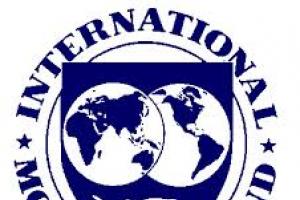As part of a social uprising that has brought Ecuador to a virtual standstill, a growing number of protesters from environmental and human rights organizations have occupied the offices of the International Monetary Fund (IMF) to protest the IMF's role in Ecuador's current social crisis.
Ecuador
Bulletin articles
13 February 2001
Industrial shrimp farming is one of the direct causes of the deforestation of mangroves in the tropics. In Ecuador the level of destruction caused by the 1970s and mid 1980s shrimp production boom continues unabated, even though a law for the protection of mangroves was approved in 1995. Nowadays there are in Ecuador 40,000 hectares of ponds which have affected 70% of the country's mangrove area and practically all of its estuaries in the Pacific Ocean shore. Local economies have been disrupted.
Bulletin articles
17 July 2000
Ecuador's lush mangroves at the Pacific Ocean coast have been suffering for long the effects of commercial shrimp farming that, together with the government's shortsighted vision and irresponsible behaviour on the issue, is to be blamed for the destruction of this valuable ecosystem regarding biodiversity, local communities' livelihoods and coastal protection (see WRM Bulletins 14, 21 and 24).
Bulletin articles
18 May 2000
In spite of the experiences accumulated during all these years with regard to the damages caused by large-scale tree plantations, the draft bill of the so-called Special Law for Sustainable Forestry Development in Ecuador is inspired in the Chilean legislation of the 1970s, which has been the model for the legal framework that regulates forestry activities in other South American countries. Such model is based precisely on the promotion of tree plantations, while forests occupy a secondary place in importance.
Bulletin articles
18 April 2000
The comercial cultivation of "palmito" palms (from which heart of palm is extracted) began in Ecuador in 1987 and since then its expansion has been constant, having become a new export crop. The heart of palm is obtained from the interior of the trunk of several species of palm trees. The "chontaduro" (Bactris gasipaes), a palm native to Ecuador, is the most cultivated in the country to this aim.
Other information
20 January 2000
The social and environmental impacts of tree monocultures in the Andean Páramos of Ecuador in a project carried out by the Dutch consortium FACE are analyzed in a thesis work for a PhD in Environmental Sciences of the Universitat Autónoma de Barcelona, Spain. The author -Verónica Vidal- worked during several months in that grasslands region of Ecuador, inhabited by indigenous peasants, and which is capital for the maintenance of the hydrological cycle and as well as hosting high levels of biodiversity.
Bulletin articles
20 December 1999
Mache-Chindul rainforests and mangroves, located in the Province of Esmeraldas in the Ecuadorian Pacific region hold high levels of biodiversity. Additionally, this province is a multicultural complex formed by different ethnic groups -indigenous, black and "mestizos", as the Chachi, the Emperas, the Awa, Afro-Esmeraldian population and landless peasants who arrived there as colonists expelled from other regions of the country.
Bulletin articles
20 October 1999
The environmental NGO Accion Ecologica, with headquarters in Quito and working in several locations of Ecuador has been accused of being involved in the recent kidnappings of eight oil company technicians that occured near Lago Agrio in the Amazonian region of the country. This organization has released the following statement:
Bulletin articles
24 September 1999
The course "Plantations are not forests", organized by the Institute of Ecologist Studies of the Third World (Instituto de Estudios Ecologistas del Tercer Mundo) and the Latin American Faculty of Social Sciences (FLACSO) took place in Quito, Ecuador from July 12-16. Alvaro Gonzalez, from the WRM International Secretariat was in charge of the course, which focused on the main characteristics of the plantation forestry model, its promoters, impacts and resistance against it, with a special focus on forests and plantations in Ecuador.
Bulletin articles
24 July 1999
To face the critical situation of public finances and meet the demands ot the IMF, last March President Jamil Mahuad sent to the National Congress a draft bill for the so called Rationalization of Public Finances, that among other measures, paved the way for the privatization of 60,000 hectares of land along the Pacific Coast by the shrimp industry. The operation would have meant an income of U$S 60 million dollars to the State budget. At the same time, the government added that the idea of opening new concession areas for shrimp farms would not be discouraged.
Bulletin articles
26 March 1999
Oil prospection and exploitation is one of the most destructive activities affecting tropical forests and local communities worldwide. He are happy to announce that -at last- something positive has happened in Ecuador, where the Government has issued two decrees declaring the territory of Tagarei (773,220 hectares) and the zone of Imuya in Cuyabeno (435,000 hectares) as protected areas in perpetuity.
Bulletin articles
26 March 1999
Ecuador is currently facing an extremely serious social situation as a result of a number of unpopular economic measures adopted by the government -in line with IMF and World Bank recommendations- which have resulted in workers' strikes, peasant and indigenous peoples' demonstrations, road blockades, violence in many parts of the country, rumours of a possible military coup and generalized caos within the country.

